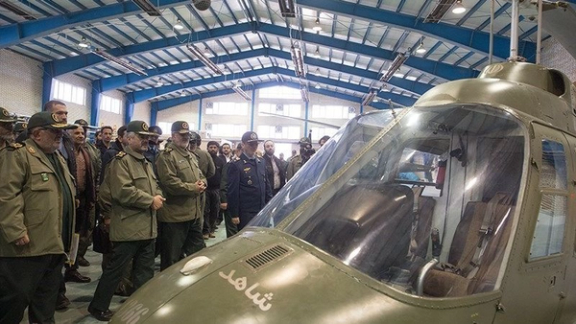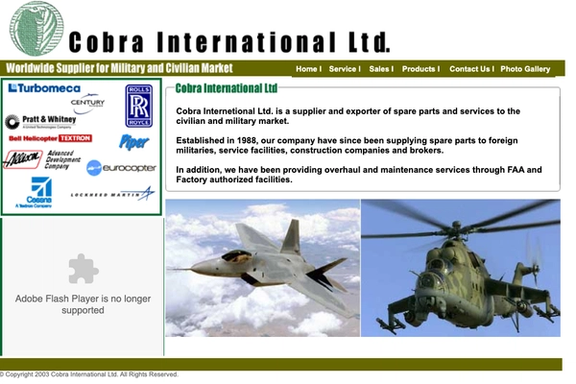Iran military deployed global network to source aircraft parts - researchers

Fresh research and US court filings have traced an expansive international network supplying helicopter parts and even a full American-made aircraft to Iran’s military.

Fresh research and US court filings have traced an expansive international network supplying helicopter parts and even a full American-made aircraft to Iran’s military.
The investigation, led by research firm Kharon and backed by a US civil forfeiture case, reveals how the network used intermediaries across Europe, the Middle East and the Americas to conceal its Iranian military end-users.
“With its use of layered intermediaries, third-country brokers and seemingly legitimate front companies in Western Europe, the helicopter-parts network demonstrates the growing sophistication of the illicit supply chains that support sanctioned military programs,” Kharon said.
The US Treasury’s October 1 sanctions followed the UN’s snapback on Iranian restrictions and targeted the Iran-based Pasargad Parvaz Kish Helicopter Company (PHC) and its Germany-based chief executive, Mehdi Shirazi Shayesteh. Treasury said PHC procured aircraft and spare parts for Iran’s state helicopter maker, PANHA, using a “transnational procurement network.”
Corporate filings show that PHC’s ownership ties extend into the investment arm of the sanctioned Pasargad Bank, embedding it within Iran’s restricted financial system.
According to a civil forfeiture complaint reviewed by Kharon, Shayesteh and his Iran-based partner, Amirhossein Salimi—the head of Uruguay’s Perfect Day SA—set up a joint venture in Portugal in 2021 called Business United Unipessoal LDA. Their first deal was the acquisition of a US-origin helicopter, which was routed through the network and eventually sold to PHC.
A US link in the chain
Among the entities linked to the operation was Cobra International, a Union City, New Jersey–based supplier that advertises itself as serving “civilian and military markets.” Between 2021 and 2023, Business United carried out several transactions with Cobra, including a $209,000 purchase of a used helicopter engine that US authorities later seized.
Kharon’s review found Cobra’s business connections also reached companies tied to Russia’s defense sector.

Court filings identified Dubai-based Indian broker Krishnamurthy Shekar as a key facilitator who sought helicopter engines from Cobra in 2023 on behalf of Business United. He maintains professional links to several aviation suppliers in the UAE and India.
In Europe, Swedish national Ramtin Emami directed two companies—Nordic Air and Heli Invest AB—that received US-origin parts from Cobra and re-exported them to Iran. Business United requested that the shipments be routed through Sweden before their final delivery to PHC, according to Kharon’s findings.
The case underscores the growing complexity of Iran’s defense procurement networks, which rely on Western intermediaries, layered brokers and front companies to mask their military objectives.